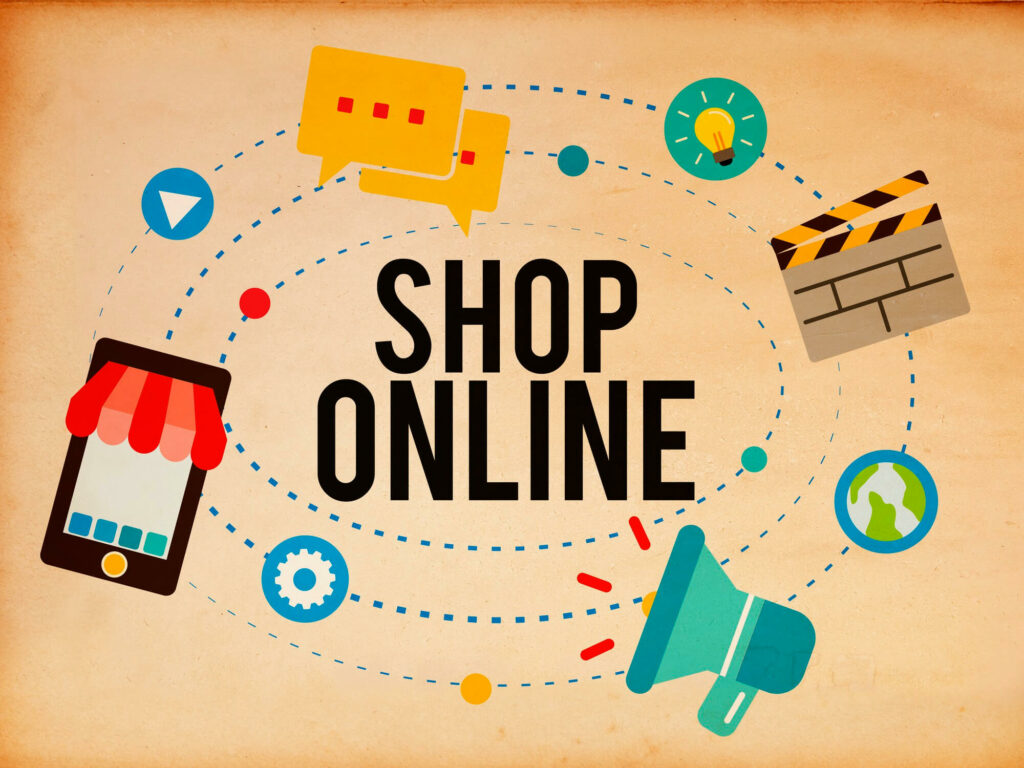Have you ever made purchases through social media? If so, you’ve engaged in social commerce. Although the term may not be familiar, let’s delve into its meaning below.
What is Social Commerce?
If you have accessed social media platforms such as Facebook, Instagram, and TikTok over the past five years, you may notice that their features and appearance have changed significantly. The online marketplace function on these three social media platforms would be one of the most significant changes. Facebook Shop, Instagram Shop, and TikTok Shop are now available.
In the past decade, e-commerce has become increasingly popular. They now also shop via social media. Despite the fact that social media was initially designed solely to connect people, its form and purpose have since shifted.
Social commerce encompasses the use of social media as a commercial platform. Through social commerce, the user can encounter a variety of experiences. They can interact with other users, search for a product that meets their needs, discover new retailers, select, and even purchase the desired item.
However, social commerce can also be understood as a direct attempt to sell products via social media. A social commerce transaction is advantageous for both the seller and the buyer.
The transactional simplicity benefits purchasers. They can quickly purchase the required product by scrolling through their social media platforms. The seller also benefits from the simplicity of establishing a storefront and the reduced number of platforms to manage. They are not required to create another website or storefront. They can quickly set up the product display, which may result in an influx of orders.
Also read: What is a B2C Business Model: The Characteristics and Examples
Advantages of Social Commerce

What is Social Commerce? Here are The Definition and The Advantages (source: Freepik)
Now that we have defined social commerce, let’s explore its advantages as a business model. The definition of social commerce itself highlights the benefits of using social media as a buying and selling platform. However, let’s examine these advantages in more detail:
-
Enhanced shopping experience
Shopping through social commerce provides a unique experience compared to other platforms. Users can effortlessly scroll through their social media feeds and come across products they have been seeking or find intriguing.
They can also share pictures or links to desired products with others, serving as references or recommendations. The entire experience feels seamless, similar to browsing through social media as usual.
-
Streamlined shopping process
A decade ago, people used social media for buying and selling, but it was not a complete end-to-end transaction platform. Transactions were often conducted through methods such as cash on delivery or bank transfers. However, the emergence of e-commerce platforms in recent years has provided a comprehensive ecosystem for buyers and sellers.
Users can now perform all shopping activities within their social media apps, from product selection to payment, thanks to social commerce.
Also read: Social Commerce vs. E-Commerce, What Are the Differences?
-
Improved interaction between buyers and sellers
Social commerce facilitates easier and smoother interactions between sellers and buyers. Since social media platforms are primarily designed for connectivity, interactions on these platforms feel effortless. Users can easily like products and leave reviews, and sellers can effectively manage customer feedback. Detailed questions can be addressed through direct messaging features, fostering stronger bonds between buyers and sellers.
Additionally, social media platforms have a more relaxed ambiance compared to traditional e-commerce platforms, further enhancing the interaction experience.
-
Easy access to Gen Z and millennial customers
Gen Z and millennials are the dominant generations on social media platforms, spending a significant amount of time on them. As a result, these generations prefer to engage in social commerce. Sellers targeting these demographics as their primary customers can greatly benefit from social commerce by implementing suitable promotion strategies to capture the attention of Gen Z and millennials.
Also read: Getting To Know SaaS Startup, Its Benefits and Weaknesses
List of Social Commerce Companies

What is Social Commerce? Here are The Definition and The Advantages (source: Freepik)
As mentioned earlier, three prominent social commerce platforms exist today. However, considering ongoing developments, more social media platforms are likely to incorporate this feature in the future. Here are a few examples of social commerce platforms available today:
-
Facebook
Facebook is the pioneer of social commerce and has a vast user base worldwide. It provides an attractive target market for sellers, allowing them to easily set up online stores. Buyers can select and purchase products without needing to switch to another app or website.
-
Instagram
Instagram’s features undergo constant changes. The shopping bag icon on the bottom bar of the Instagram app is a useful addition. This feature enables buyers to explore a seller’s catalog and view prices, options, and product variations. With its emphasis on visual content, Instagram offers an excellent interface for online stores.
Also read: 5 Top Social Commerce Startups in Indonesia and South East Asia
-
Tiktok
As a relatively new video app, TikTok follows in the footsteps of Facebook and Instagram. With over 1 billion active users globally, TikTok holds promise as a social commerce platform
The process of buying and selling on TikTok is seamless as well. Sellers can easily download the app and create an account for their store, while buyers only need an account to start shopping. TikTok also offers various payment methods, benefiting users.
Now that we have covered the definition and benefits of social commerce, have you ever tried shopping on any of the social commerce platforms mentioned above?



